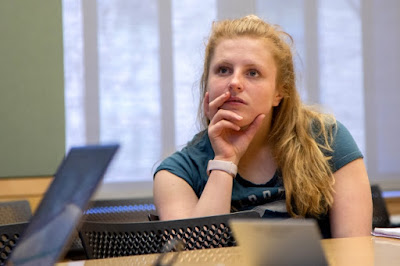In STS.047 (Quantifying People), MIT students explore the history of science from the 17th century to the present, through the eyes of statisticians and sociologists.
Is it appropriate to evaluate the causes of suicide but dismiss mental illness as a contributing factor? What happens when you talk about war deaths as colored wedges on a chart? Does that change the conversation in important ways?
MIT students grappled with these and similar questions this spring in STS.047 (Quantifying People), a new subject focused on the history of the quest to understand human society scientifically. William Deringer, the Leo Marx Career Development Assistant Professor of Science, Technology, and Society, says he developed the class to enable students to explore the questions that motivate much of his own research: “Why do we invest so much trust in numbers, and what are the consequences for who we are?”
 |
| Calculated Values: Finance, Politics, and the Quantitative Age |
This complex interplay of science and society is precisely what attracted Rhea Lin to the subject. “I wanted to take a humanities course that would give me the opportunity to reflect on how society has been impacted by science in the past and how my work as an engineer might affect people in the future,” says Lin, a senior majoring in electrical engineering and computer science.
Read more...
Source: MIT News













